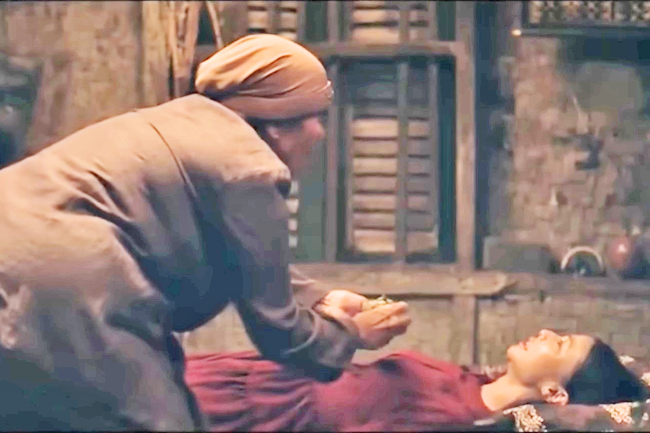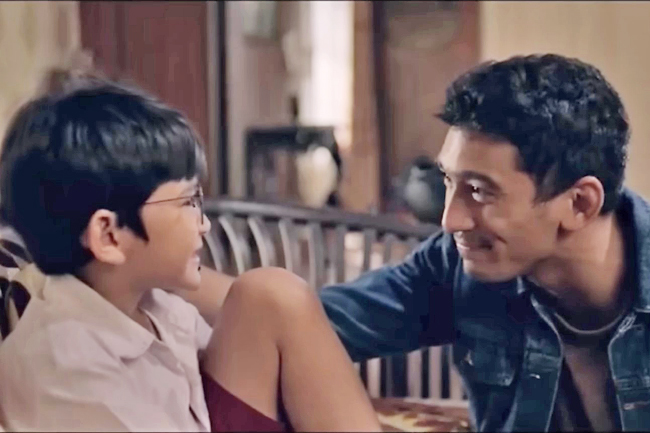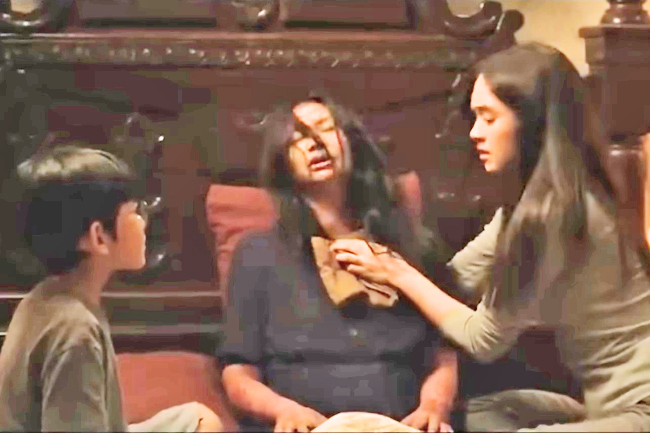Life and death – two sides of a coin we all carry, yet rarely dare to flip. I often find myself lost in thought, pondering how fragile life really is.
One moment we’re here, immersed in the chaos and beauty of existence, and the next… well, that’s the mystery, isn’t it? Death is inevitable, but somehow, it always feels distant, like a shadow just out of reach.
It’s strange, really, how we live each day as if we have all the time in the world, when in truth, none of us know when our time will come.
That feeling is encapsulated so powerfully in Nearing Death (2024, Original title: Menjelang Ajal), directed by Hadrah Daeng Ratu. (Of course those musings are the start of a horror movie review.)
The film takes an unflinching look at life’s final chapter, drawing viewers into a world where time is no longer a luxury but a stark reality. Watching it, I couldn’t help but feel the weight of each scene, as it skilfully explores the fragility of life and the inevitability of death.
A MOTHER’S BURDEN
The opening scene immediately draws you in with its mysterious air. We’re introduced to an old shaman, performing a cryptic ritual with a woman who we later find out is Sekar, a middle-aged widow.
The atmosphere is thick with tension, and though we’re not entirely sure what’s happening, it’s clear that Sekar is seeking something from the unknown – a request that goes beyond the ordinary.
The shaman’s warning lingers in the air: this is a transaction, and should Sekar fail to uphold her end of the bargain, she will face dire consequences.
The brilliance of this scene lies in its ability to captivate without giving too much away – just enough to spark curiosity, leaving us eager to piece together the puzzle as the film progresses.
In the movie, Sekar finds herself navigating the complexities of family life while shouldering the burdens of running a small restaurant to keep her household afloat.
Her teenage daughter, Ratna, and young son, Dodi, rely heavily on her, but it’s her grown-up son Dani who tugs at her heart the most.




Dani, carefree and seemingly indifferent to his family’s struggles, spends his nights roaming the city on his motorbike, leaving Sekar to wonder when, if ever, he will take up some sense of responsibility.
Sekar’s frustration with her eldest son reached its breaking point.
For years, she’s pleaded with him to go to college, to take responsibility, to think about his future. Yet, her words always seem to fall on deaf ears. As a mother, she’s carried the weight of his indifference for far too long.
Finally, in a moment of utter exhaustion, Sekar turns to Dani and says the words no parent ever wants to utter, “I can’t do this anymore. You need to leave and figure out what you will do with your life.”
Her heart shatters with each word, but deep down she knows this might be the only way for him to realise the gravity of his choices.
Watching this unfold, I couldn’t help but feel Sekar’s anguish. Her struggles extend beyond Dani – her small restaurant, which has been her lifeline, is slowly becoming another source of overwhelming stress. Sales are dropping, and no matter how hard she tries, her customers seem to find fault with the food.
It’s baffling because, inside, the restaurant is spotless, yet from the outside, it appears dull and uninviting.
The ruined takeaways add to her frustration, leading her to suspect her staff is slacking off. But when the problems persist, Sekar’s instincts tell her something deeper is at play.
FAMILIAL BONDS
As I watched Sekar’s story unfold, I couldn’t help but feel her frustrations.
She’s the epitome of resilience, balancing her small business with the care of her children, all while yearning for Dani to step up and help shoulder the load.
It’s a dynamic many of us can relate to – having that one family member who refuses to grow up while everyone else carries the weight of life.
The film cleverly portrays this tension, as we witness the silent hopes Sekar harbours for Dani to be more than just the rebel on his bike, to be the son who helps her breathe a little easier.
What struck me most was how the film interlaces in the harsh reality that life isn’t always fair, especially for mothers like Sekar who have to be everything for everyone. It paints an emotional picture of familial bonds stretched thin, with Sekar standing as a reminder of the sacrifices we often take for granted.
Fair warning – this film isn’t for the faint-hearted. With its fair share of gore and unsettling moments, Menjelang Ajal may have you squirming in your seat if you’re prone to a squeamish stomach.
For those who aren’t big fans of intense visuals, I’d recommend watching it during the day, where a little daylight might help soften the darker scenes. – Izah Azahari



















































